How Guatemalans began daring to say what they think
- Published
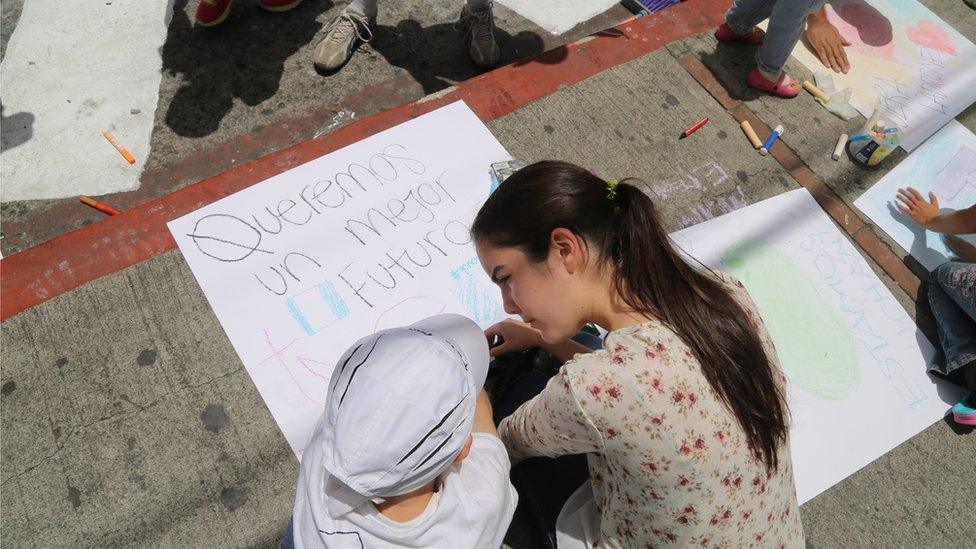
Children write a placard saying "We want a better future" at a protest in Guatemala
Before tucking into her dinner last week, six-year-old Paula Menchu made sure she said her prayers. She asked God to grant her peace and a less crooked president.
President Otto Perez Molina has now handed in his resignation after more than four months of weekly demonstrations demanding that he go.
They began after a report was issued in April by the International Commission against Impunity in Guatemala (CICIG), a UN body created in 2006 designed to strengthen the country's rule of law.
In it, several high-profile politicians were implicated in a corruption ring involving the country's customs agency.
A second, smaller, investigation relates to a social security scandal and allegations that a company paid bribes for a dialysis contract. Faulty care apparently resulted in the deaths of several patients.
Cabinet members have resigned and the former vice-president Roxana Baldetti is now in jail awaiting trial. Mr Perez Molina, who denies the allegations, is now joining her.
"The corruption scandals have acted as a trigger," says the International Crisis Group's Guatemala analyst Arturo Matute. "They've really outraged a significant proportion of the Guatemalan population."
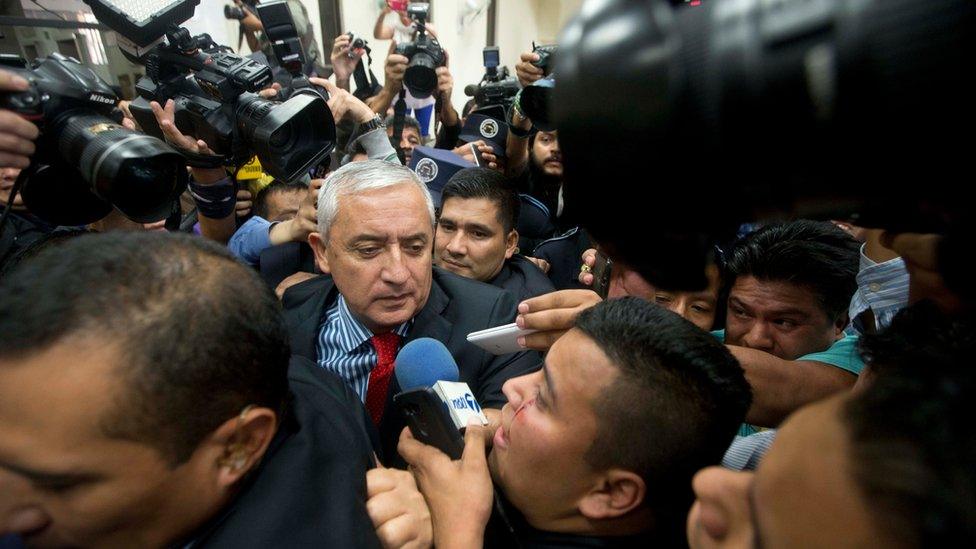
A judge ordered Mr Perez Molina's detention on Wednesday
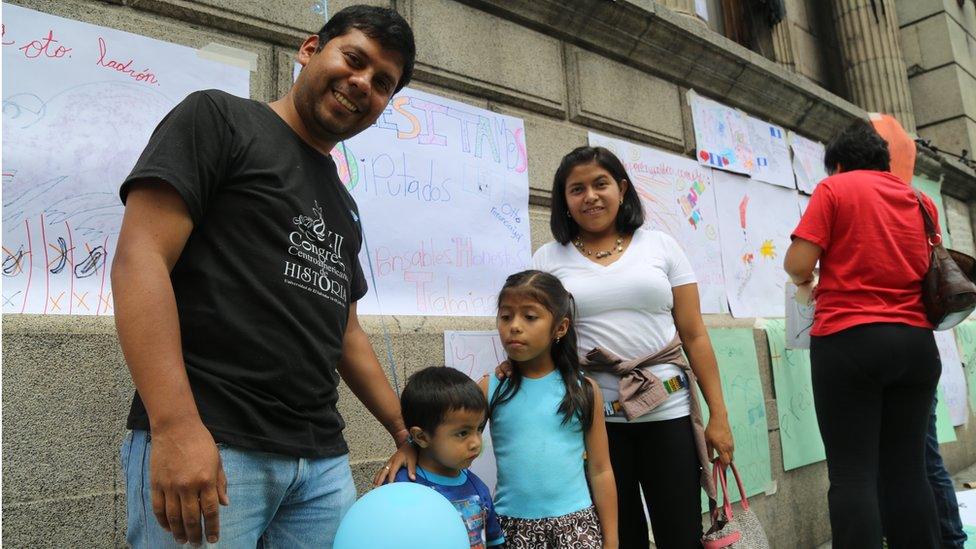
Paula Menchu, 6, and her brother Oscar, 2, are among those who have protested against the government
I met Paula outside Congress in downtown Guatemala City last weekend. She was with her parents and two-year-old brother Carlos.
They, along with dozens of other children, were colouring in posters that read Free Guatemala, Give us back our money, and Otto Perez, Guatemala doesn't want you.
"If we don't talk about this when they are little they won't have a critical conscience," Jimena's father, Julio, says. "They won't be able to defend their own rights."
The event was organised by the group #JusticiaYa - Justice Now. The movement began on Facebook and organised the first march in April.
Gabriel Wer, 33, who works as an administrator in his family's business, is one of the founding members.
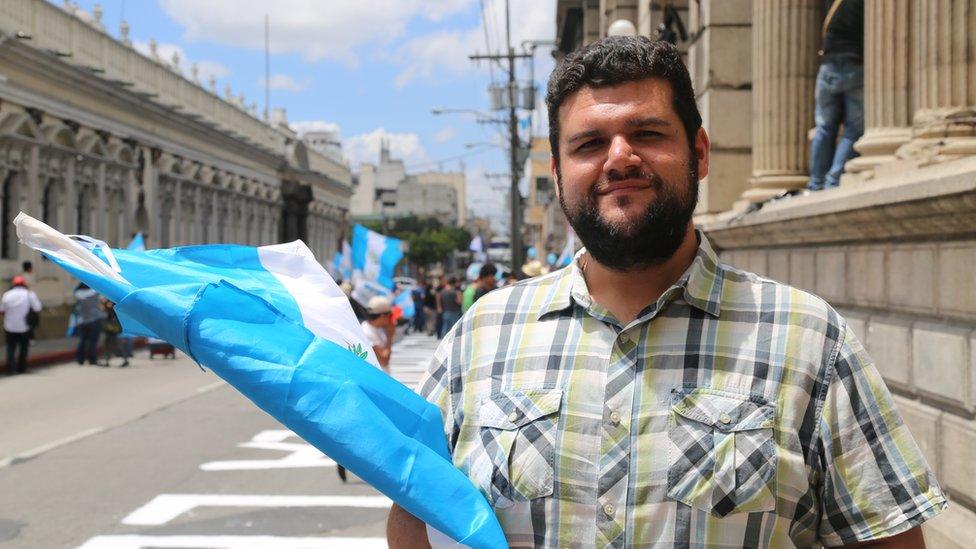
Gabriel Wer: "We are daring to say what we think"
He puts the success of the protests down to Guatemala having a young population, one that is increasingly connected with technology and new media.
"We've been a society used to silence because of the civil war we were in," he says.
"That's changing. We are daring to say what we think, what we feel as a country, as a society."
Importantly, in one of the most violent countries in the world, these have been peaceful protests. JusticiaYa say that has been key to their "search for transparency and justice".
Central American Spring?
Guatemala's protests have not been isolated. Neighbouring Honduras has also seen people take to the streets in recent months.
Parallels have been drawn between these and the young people who protested in the Middle East during the so-called Arab Spring more than four years ago. Some have called this movement the Central American Spring.
Martin Rodriguez Pellecer, the director of well-respected online paper nomada.gt, points to the stripping of the president's immunity for the first time in the country's history.
Like in other springs, "citizens were able to do more than those in power," he says.
But it is not an analogy that everybody agrees with.
"We don't really have oppressive governments, we have abusive governments," says Hugo Novales, a political analyst at the Investigation and Social Studies Association in Guatemala.
"We have a democracy, albeit it's not the best. We have a problem with the quality so I don't think the term Guatemalan Spring is the best."
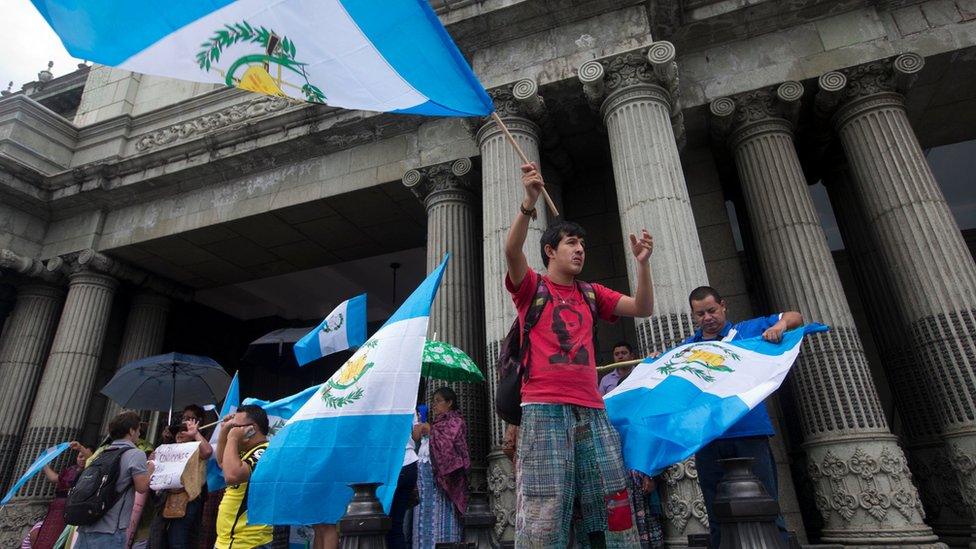
Protests could lead young people to get into politics in Guatemala, one analyst says
The UN anti-corruption body CICIG, along with the country's public prosecutor, has been widely praised over these revelations.
Eduardo Stein was vice-president of Guatemala between 2004 and 2008, and helped set up the CICIG.
"It shows the measure of how infected the scaffolding of the state was - or is," he says. "Our justice system would have never on its own delved deep into these corruption schemes as they have now."
Its success makes many feel it is too early for Guatemala to go it alone.
"It is like putting on mosquito lotion," says Peter Hakim of the Inter-American Dialogue in Washington. "You can keep the mosquitoes away but they are still out there.
"The minute the lotion is lost, they will begin attacking again."
Spur to young people?
Mr Perez Molina's resignation has been long awaited. Now he has gone - and before Sunday's first round of presidential elections, what will that mean?
"The message that it sends is that corruption is not as tolerable as it used to be," says Hugo Novales, of the Investigation and Social Studies Association.
"This will set a good example towards whoever becomes president or takes any form of office next year - that institutions are working, that voting counts for something, that politicians sometimes do hear what people request."
These elections may not change politics immediately but what has already changed is the way Guatemalans view politics and its actors. There is a different future ahead.